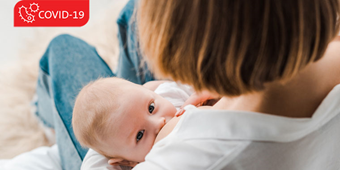Study Uncovers Promising SIDS Breakthrough

Find Your Perfect Match
Answer a few questions and we'll provide you with a list of primary care providers that best fit your needs.
Sudden infant death syndrome (SIDS) accounts for about 3,400 deaths in the U.S. each year. Experts have had little idea what causes SIDS.
A new study released by Australian researchers, however, may change that, by linking an enzyme called butyrylcholinesterase (BChE) to SIDS. According to the study, children who have died due to SIDS appear to have lower levels of BChE.
Premier Health Now asked Marc Belcastro, DO, Premier Health Chief Medical Officer and a neonatologist, to comment on the study’s significance. He also offered reminders on sleep precautions you can take to reduce your baby’s risk of SIDS.
“Finding a direct cause for SIDS has eluded physicians for decades,” Dr. Belcastro says. “We need to reconfirm these new findings with further studies, but there’s a high likelihood that we will be able to identify infants at risk using BChE as a biomarker.”
Doctors know that some infants don’t have the capacity to arouse themselves from sleep, even if they are having trouble breathing. The study established a link between low BChE levels and a baby’s impaired arousal response.
Identifying low BChE as a risk factor for SIDS will be the first part of the puzzle. It will require further study to learn at what BChE level babies become at risk.
“Even with identification of babies at high risk, the hardest challenge will be to figure out what else we can do to prevent SIDS,” Dr. Belcastro says.
Although current breathing monitors don’t seem to prevent SIDS, Dr. Belcastro is hopeful that new technology could be developed to monitor declining oxygen levels so that a distressed baby could be helped before needing resuscitation.
While scientists continue their research, Dr. Belcastro recommends that you and caregivers for your baby faithfully follow safe sleep guidelines to minimize the risk of SIDS. These precautions are especially important from ages one to six months, when babies cannot roll themselves over:
- Place your baby on his back to sleep – not on his side or stomach.
- Use only a fitted sheet in the crib – no blankets, bumper pads, or stuffed animals.
- Find a comfortable temperature for the room that’s not too cold and not too warm.
- Breastfeed if you can. Breastfed babies are known to have less incidence of SIDS.
- Use a pacifier. Introduce it at one month if your baby is breastfed and earlier, if not.
- Do not expose your baby to secondhand smoke. If you smoke, do so outside and away from your baby.
An additional sleep precaution recommended by the American Academy of Pediatrics is to not bring your baby in bed with you. Instead, let your baby sleep in a bassinet next to your bed.
“A baby’s death while sleeping is one of the most tragic events for a family,” Dr. Belcastro says. “Now, we potentially have a test that could lead to new technologies and further prevention.”
Find Your Perfect Match
Answer a few questions and we'll provide you with a list of primary care providers that best fit your needs.
Sources: Marc Belcastro, DO, Chief Medical Officer of Premier Health; CNN



